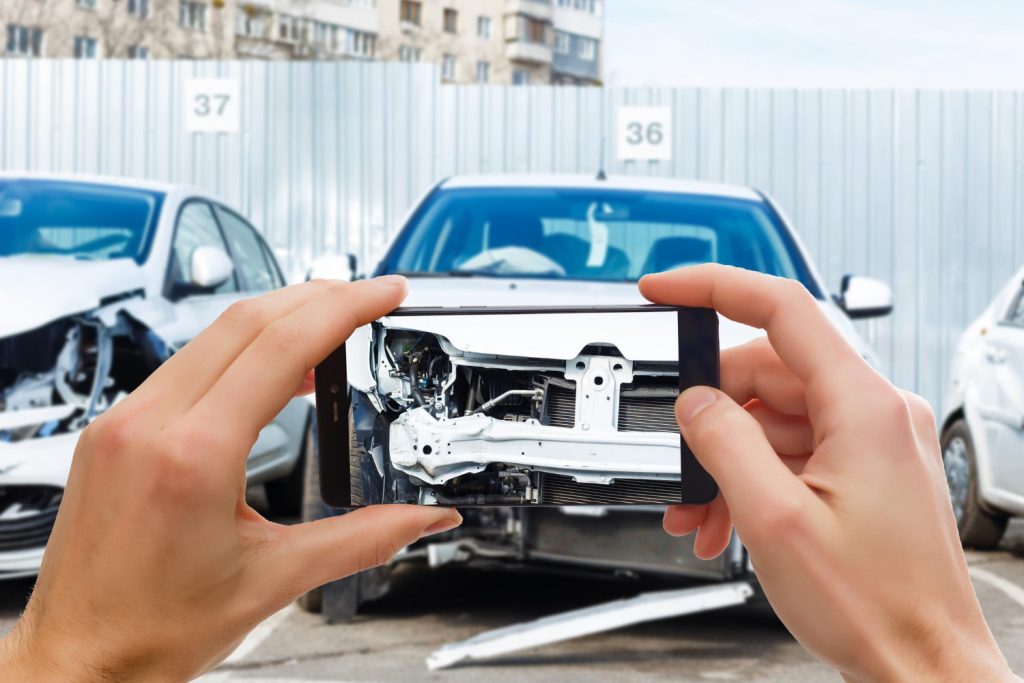Key Takeaways:
- Emergency Vehicle Privileges and Responsibilities: Emergency vehicles in Florida, such as ambulances, fire trucks, and police cars, can deviate from traffic laws (e.g., exceed speed limits, run red lights) when sirens and lights are active, but drivers must exercise “due regard” for public safety to avoid reckless driving.
- Motorist Obligations: Florida law requires drivers to yield the right of way to emergency vehicles with active sirens and lights by pulling over to the road’s edge, clearing intersections, and stopping until the vehicle passes, as well as complying with the Move Over Law for stopped emergency vehicles.
- Right to Medical Treatment and Compensation: If injured in an emergency vehicle accident, you are entitled to immediate medical attention, coverage through Personal Injury Protection (PIP) insurance, and compensation for serious injuries, lost wages, and other damages beyond PIP limits.
- Right to File a Legal Claim: You can pursue a lawsuit if the emergency vehicle driver was negligent, another driver failed to yield, government entities neglected vehicle maintenance, or emergency personnel acted outside their legal authority.
- Comparative Negligence in Florida: Under Florida’s modified comparative negligence rule, you can recover damages only if you are 50% or less at fault for the accident; otherwise, recovery is barred (except in medical malpractice cases).
- Common Causes of Accidents: Emergency vehicle accidents often result from civilian drivers failing to yield, disregarding the Move Over Law, or driving distracted, as well as emergency vehicle operators driving recklessly or without proper signals.
- Steps After an Accident: Ensure safety, call 911, document the scene (photos, witness information), avoid admitting fault or giving recorded statements to insurers, and report the accident to authorities for proper documentation.
- Role of an Ocala Personal Injury Lawyer: An experienced lawyer can navigate sovereign immunity laws, investigate operator protocols, gather evidence (e.g., police reports, traffic footage), and negotiate with insurers to secure fair compensation.
- Marion County Accident Statistics: Marion County reported 2,282 crashes and 1,895 injuries through May 2025, with 113 fatalities in 2024, underscoring the prevalence and severity of accidents, including those involving emergency vehicles.
- Preventative Tips for Motorists: Stay alert, keep radio volumes low to hear sirens, avoid distractions, yield properly by pulling over and stopping, and follow the Move Over Law to reduce the risk of emergency vehicle accidents.
Getting hit by a police car, ambulance, or fire truck in Ocala creates a legal nightmare that most attorneys won’t even touch. Emergency vehicle accidents don’t follow normal rules – these government agencies have special protections that can make it nearly impossible to get compensation, even when their driver was clearly at fault. Here’s what local governments and their insurance companies are counting on: that you’ll give up when you discover how difficult these cases are to win. They’ll claim their officer or paramedic had ’emergency immunity’ or was justified in running that red light, even if they caused your traumatic brain injury or permanent disability.
The harsh reality is that suing the City of Ocala, Marion County, or the state of Florida requires navigating government immunity laws, strict notice requirements, and caps on damages that don’t exist in regular car accident cases. As an experienced Ocala emergency vehicle accident attorney, I’ve successfully fought government agencies that tried to hide behind immunity when their vehicles destroyed innocent lives. Don’t let them convince you that government employees are above the law – when their reckless driving causes your injuries, they should pay just like any other at-fault driver.
Understanding Florida Law on Emergency Vehicles
Florida law provides specific protections and obligations when it comes to emergency vehicle accidents. Under Florida Statutes, an authorized emergency vehicle includes ambulances, fire trucks, police cars, and other vehicles operated by government agencies when responding to emergency calls.
When Emergency Vehicles Can Deviate from Traffic Laws
Emergency vehicle operators have certain privileges when their sirens and flashing lights are activated. They can:
- Exceed the posted speed limit
- Run red lights and stop signs
- Drive against traffic flow
- Make illegal turns
However, these privileges come with a crucial requirement: emergency vehicle drivers must exercise “due regard” for the safety of all persons and property. This means they cannot drive recklessly or with reckless disregard for public safety.
Your Legal Obligations as a Motorist
When an emergency vehicle approaches with active lights and sirens, Florida law requires you to yield the right of way by moving to the closest edge of the roadway, clearing intersections, and remaining stopped until the vehicle passes. The Move Over Law requires you to change lanes or, if unsafe, slow down when approaching stopped emergency vehicles with flashing lights
Your Rights as a Motorist or Passenger in an Emergency Vehicle Accident
If you’ve been injured in an accident involving emergency vehicles, you have important legal rights that protect you, regardless of who was at fault.
Right to Medical Treatment and Compensation
Your first priority should be healing, not fighting with insurance companies. You have the right to:
- Immediate medical attention for any injuries sustained
- Coverage for medical expenses through your Personal Injury Protection (PIP) insurance
- Compensation for serious injuries that exceed PIP limits
- Recovery of lost wages and other damages
Right to File a Legal Claim
Even if an emergency vehicle was involved, you may still have grounds for a lawsuit if:
- The emergency vehicle driver was operating negligently
- You were injured due to another driver’s failure to yield
- Government entities failed to properly maintain emergency vehicles
- Emergency personnel acted outside their legal authority
Protection Under Florida’s Comparative Negligence Law
Florida now follows a modified comparative negligence rule. You may recover damages only if you are 50% or less at fault for the accident. If you are found more than 50% at fault, you are barred from recovery (except in medical malpractice cases
Common Causes and Liability Issues in Emergency Vehicle Accidents
Understanding how liability is determined in accidents involving emergency vehicles is crucial for protecting your rights.
Civilian Driver Negligence
The most common cause of emergency vehicle accidents involves civilian drivers who:
- Fail to yield or pull over when emergency vehicles approach
- Don’t comply with the Move Over Law
- Drive while distracted or under the influence of alcohol
- Make sudden lane changes without checking for emergency vehicles
Emergency Vehicle Operator Negligence
Emergency vehicle drivers can be held liable when they:
- Operate vehicles without proper audible signals or flashing lights
- Drive recklessly despite emergency conditions
- Exceed reasonable speed limits for conditions
- Fail to exercise due regard for public safety
Recent Example in Ocala
A notable emergency vehicle accident in Ocala involved an ambulance responding to an emergency that was struck by a bus carrying special needs students, followed by a pickup truck collision that caused the ambulance to roll over. Fifteen people, including firefighters and students, were hospitalized, highlighting the serious nature of these accidents.
Steps to Take Immediately After an Accident Involving an Emergency Vehicle
If you’re physically able, here’s what you should do immediately after an accident with an emergency vehicle:
Ensure Safety First
- Move to a safe location if possible
- Call 911 for medical assistance
- Turn on hazard lights
- Check for injuries but don’t move seriously injured persons
Document the Scene
- Take photos of vehicle damage, the accident scene, and any visible injuries
- Get contact information from all drivers involved
- Collect witness statements and contact information
- Note the time, weather conditions, and traffic signals
Important: What NOT to Do
- Don’t tell anybody you’re not injured if you haven’t been medically evaluated
- Don’t admit fault or apologize
- Don’t give recorded statements to insurance companies without legal representation
- Don’t sign any documents except those required by law enforcement
Report the Accident
Contact local Ocala authorities such as a law enforcement officer immediately. Emergency vehicle accidents often require special reporting procedures, and having proper documentation is vital for any future claims.
Marion County Accident Statistics: The Numbers Tell the Story
According to the Florida Department of Highway Safety and Motor Vehicles, Marion County reported approximately 2,282 crashes and 1,895 injuries through May 2025. In 2024, there were 113 fatalities, including 13 motorcyclists and 21 pedestrians
Preventative Tips for Motorists to Avoid Emergency Vehicle Accidents
Prevention is always better than dealing with the aftermath of an accident. Here are essential tips:
Stay Alert and Prepared
- Keep your radio at reasonable volume to hear sirens
- Check mirrors frequently when driving
- Avoid distractions like cell phones
- Stay aware of your surroundings, especially in emergency-prone areas
Proper Yielding Procedures
When an emergency vehicle approaches:
- Slow down immediately
- Signal your intention to other drivers
- Pull to the right and stop completely
- Wait until the emergency vehicle passes
- Check traffic before re-entering the roadway
Understanding the Move Over Law
Florida’s Move Over Law requires drivers to:
- Change lanes away from stopped emergency vehicles
- Reduce speed if lane change isn’t possible
- Exercise caution when passing accident scenes
- Maintain safe following distances
Legal Protections and Your Right to Recovery
Understanding your legal protections is crucial for making informed decisions about your case. In Florida, you have specific rights that protect you in emergency vehicle accidents:
Sovereign Immunity Exceptions
While government agencies have certain legal protections, there are exceptions when:
- Emergency vehicle operators act outside their official duties
- Agencies fail to properly maintain emergency vehicles
- Personnel act with reckless disregard for public safety
Damages You May Recover
If you’ve sustained injuries in an emergency car accident, you may be entitled to:
- Medical expenses and ongoing treatment costs
- Lost wages and reduced earning capacity
- Pain and suffering damages
- Property damage compensation
- Rehabilitation and therapy costs
How an Ocala Personal Injury Lawyer Can Help Protect Your Rights
Navigating Florida emergency vehicle accidents can be complex, involving multiple government entities, insurance companies, and legal protections. Here’s how experienced Ocala injury claims lawyer can help:
Legal Expertise in Emergency Vehicle Cases
- Understanding sovereign immunity laws that may protect government agencies
- Investigating whether emergency vehicle operators followed proper protocols
- Determining if sirens and flashing lights were properly activated
- Analyzing traffic regulations and their application to your case
Case Investigation and Evidence Gathering
An experienced attorney will:
- Obtain police reports and emergency response records
- Work with accident reconstruction experts
- Interview witnesses and first responders
- Review emergency vehicle maintenance records
- Analyze traffic camera footage if available
Negotiating with Insurance Companies
Insurance companies often try to minimize payouts in emergency vehicle cases. A skilled attorney will:
- Handle all communications with insurance adjusters
- Ensure you receive fair compensation for medical expenses and lost wages
- Fight for damages related to pain and suffering
- Protect your rights throughout the claims process
The Importance of Acting Quickly
Time is critical in emergency vehicle accident cases. Florida’s statute of limitations typically allows two years to file a personal injury claim, but evidence can disappear and witnesses’ memories fade. The sooner you seek legal guidance, the better your chances of a successful outcome.
Your Path Forward: Getting the Justice You Deserve
If you’ve been injured in an accident involving emergency vehicles, you don’t have to face the complex legal system alone. With over 10,000 cases resolved and 34 years of experience, I understand the unique challenges these cases present.
Remember, you have rights, and those rights deserve protection. Whether you’re dealing with insurance companies, government agencies, or the aftermath of serious injuries, an experienced Ocala car accident lawyer can make all the difference in your recovery.
Every case is unique, and every client deserves individualized attention. That’s why I take the time to understand your specific circumstances and develop a strategy tailored to your needs. You’re not just another case file – you’re a person who deserves justice and fair compensation.
If you’re ready to take control of your situation and explore your legal options, don’t wait. Contact our office today for a free consultation. We’re here for you 24 hours a day, seven days a week, because when you’re injured, every moment counts.
Your rights matter, your recovery matters, and your future matters. Let’s work together to ensure you receive the justice and compensation you deserve. After all, you can love your lawyer and love your results.
Frequently Asked Questions About Emergency Vehicle Accidents
What happens if an emergency vehicle driver is at fault?
Emergency vehicle drivers aren’t immune from liability. If they act negligently or fail to exercise due regard for safety, they can be held responsible for damages. Government entities may also be liable under certain circumstances.
Can I sue if I was injured by an emergency vehicle responding to a call?
Yes, you may have grounds for a lawsuit if the emergency vehicle operator was negligent, even while responding to an emergency. The key is proving that the driver failed to exercise reasonable care under the circumstances.
What penalties do drivers face for failing to yield to emergency vehicles in Ocala?
Failing to yield to emergency vehicles can result in:
- Moving violations and fines
- Points on your driver’s license
- Potential criminal charges if injuries result
- Increased insurance premiums
How does insurance handle emergency vehicle accident claims?
Insurance companies often scrutinize emergency vehicle claims closely. Having experienced legal representation ensures your rights are protected and you receive fair compensation for your injuries and damages.
 CALL US NOW
CALL US NOW




